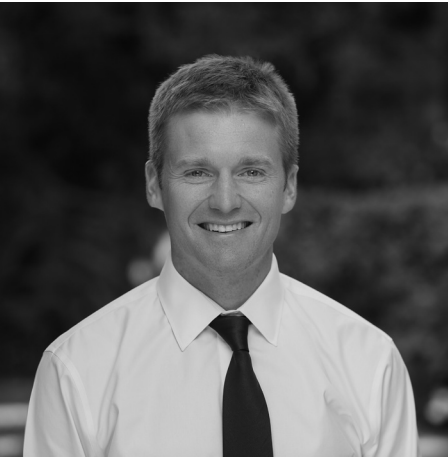Getting to Know Ryan Boccuzzi

“Anyone who’s working in education has something that drew them back,” says Ryan Boccuzzi, “because they’re essentially saying ‘Hey, I want to go to school for the rest of my life.’” On November 19, 2021, current and incoming Heads of School Bernie Noe and Kai Bynum announced that Mr. Boccuzzi would be the new Upper School director, starting in July 2022. I was able to interview Mr. Boccuzzi over Zoom this past January—him seated in his office well-lit by Californian sunlight and me calling from an empty room on the second floor of Bliss. My interview with Mr. Boccuzzi was unlike any previous interview with teachers—the originally scheduled 15-minute Q&A was extended to a 45-minute conversation, with him often responding to questions with his own questions about the student experience at Lakeside.
Mr. Boccuzzi hasn’t always envisioned himself as an educator. Growing up in Connecticut, he was a STEM-oriented student and avid soccer player. He went to college majoring in physics and imagined a future in the field. It wasn’t until his senior year when things changed. During a NASA internship, “I learned that I did not know as much physics as a lot of others did,” admitted Mr. Boccuzzi. “I also realized that I might want to choose a different career.” During this time, a friend encouraged him to explore the possibility of working at independent schools; with some experience as a teaching assistant, he decided to give it a try. Two months into teaching, he knew: “This was what I want to do for the rest of my life.”
Since then, Mr. Boccuzzi has worked at independent schools for over 17 years. Independent schools, differing from public and charter schools, have the flexibility to personalize and change academic content and programs without the constraint of state-mandated curriculums or standardized tests. “I believe that independent schools have a responsibility to be creative and adaptable in what we teach in order to better prepare students for the world at large,” explained Mr. Boccuzzi. This belief drew him towards Lakeside—its goals, values, and school culture resonated with him. “Teaching is no longer just about content—you can look up whatever information you need,” says Mr. Boccuzzi, “We need to focus on teaching skills in the equity and inclusion sphere, along with skills from the classroom and academic sphere, and highlight where these skills are intertwined to enhance each other.”
Lakeside has been placing an increasing emphasis on diversity, equity, and inclusion (DEI), a change evident in both administrative actions and student awareness. When they were asked what they would like to learn about Mr. Boccuzzi, around 80% of student respondents posed questions about DEI. At his current school, the Brentwood School, Mr. Boccuzzi often works with teachers and faculty to ensure respect, inclusivity, and awareness in the presentation and exploration of class materials. This is achieved through professional development days and conversations with students. The anti-racist group Think Tank, a student committee similiar to Lakeside affinity groups, consistently meets with teachers, administrators, and fellow students to discuss classroom experiences for students of different identities and perspectives.
At the same time, Mr. Boccuzzi acknowledges that ensuring DEI is a continued learning process. “It’s easy for us to assume how something might land when we’re coming in with a certain intention,” he says, but it’s necessary for “my colleagues and I to be humble and ‘let down our guard’”—that is, to be receptive to student concerns without assuming them. Coming to Lakeside, Mr. Boccuzzi hopes to continue his work in DEI. His foremost goal is to create classroom environments that keep students curious: “It’s hard to expect students to buy into all that is asked of them in class unless their personal experience is validated in the course material and the way it’s presented.” His work is “going to be about listening to the community and hopefully sharing my own perspectives,” he says. With these ideas in mind, Mr. Boccuzzi hopes to come to school, like all of us, to learn.
Hallie X ‘23 has spent much of her time over the past three years contributing to Tatler’s collection, amassing over 20 articles in total. She covers...
